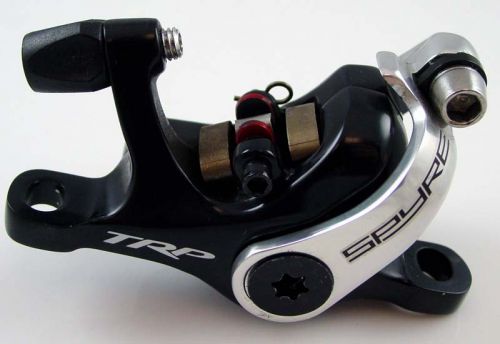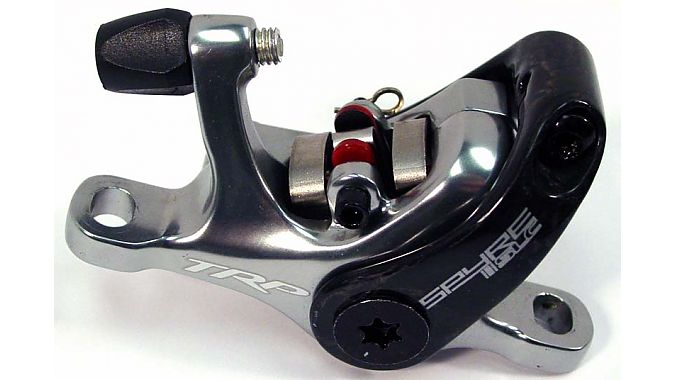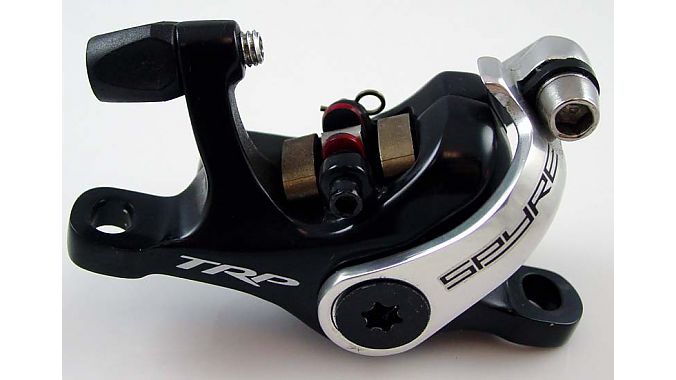WASHINGTON (BRAIN) — The Consumer Product Safety Commission has published a recall notice for about 2,000 TRP mechanical disc brake calipers sold last year. The company announced the recall on its own in December.
The CPSC is advising consumers to immediately stop using bikes equipped with the recalled brakes. They are being advised to return to the original place of purchase or contact Tektro USA/TRP for a free replacement with an improved version on the caliper.
The recall includes Spyre and Spyre SLC dual-piston mechanical disc brake calipers sold as original and aftermarket equipment. Spyre calipers have a black anodized caliper body and a silver actuator arm with "Spyre" printed on it. Spyre SLC calipers have a polished aluminum caliper body and a black composite actuator arm with "Spyre SLC" on it.
Recalled calipers have a fastening screw with a hollow six-pointed star-shaped head with no markings on it and a 3 millimeter pad adjustment screw on the outward side.
The recalled calipers were also sold as original equipment on bikes sold by BTI, Diamondback Bicycles, Giant Bicycles, Hans Johnsen Co., Kona, Marin Bikes, Quality Bicycle Products, Raleigh America and Volagi Cycles. Both models were sold with 140-millimeter or 160-millimeter rotors.
The brakes were sold from April to December last year for about $90 for the Spyre caliper and about $110 for the Spyre SLC caliper.
Consumers can contact Tektro USA or TRP customer service toll-free at (877) 807-4162 from 8 a.m. to 4 p.m. MT Monday through Friday. They can also email info@trpbrakes.com or get information on the Tektro-usa.com or TRPbrakes.com sites.
In the December notice, TRP said, "The Spyre caliper uses a dual piston design in which ball bearings move within opposing ramps. We have discovered that in a specific scenario, the balls can be forced from the ramps if the actuator arm is fully activated to its stop with excessively worn or no pads installed.
"The effect is that the one or more of the balls can jump from its position within its respective ramp, resulting in a reduction or loss of braking force."
Thursday's CPSC report explained the failure this way: ""The brake cable actuator arm can over-rotate, dislocating parts, causing the brake calipers to fail. Lack of brakes results in loss of control and a crash hazard, posing a risk of injury to the rider and others.”
The company has received one report of a failure in the field, with no injuries.








